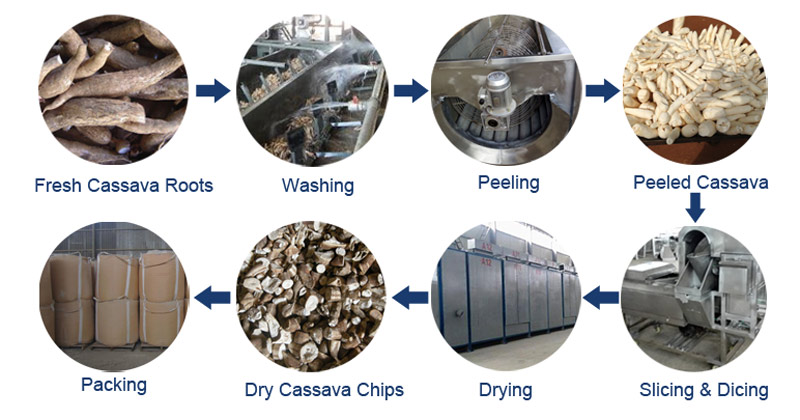CASSAVA CHIPS PRODUCTION
Cassava is a root crop, it is the underground part of the cassava shrub, which is also called Manihot esculenta. It is a root crop, and it is also a perennial crop. Cassava is the third largest source of food (carbohydrates) in the tropics, after rice and maize. Cassava is a primary staple food in the developing world, providing an essential diet for over half a billion people. It is one of the most drought-tolerant crops, capable of growing on marginal soils. Cassava chips production is done in large quantity in Benue State, all the South-South States can key into this line of production. In other to provide jobs and for economy.
Nigeria is the world’s largest producer of cassava globally and produces about 59 million metric tonnes annually, which accounts for about 20% of the global production of cassava.
Cassava can be processed in a verity of ways which include cassava chips production (tapioca), garri (cassava flakes), fufu, starch, cassava flour and pellet.
How Much is needed To Start Cassava Production In Nigeria
The cost and installation of the machinery required for cassava chips production can be estimated to be about eight million five hundred and fifty thousand Naira (N8,550,000). This doesn’t entail the cost of acquiring the site of which the plant would be constructed, and also the cost of generators, stitching machines, industrial Scale, Borehole or portable water, and other running costs. This implies that roughly about fifteen million Naira would be required in starting the business in a standard approach.

- High Presence Pest And Diseases: the high presence of diseases and pests has dramatically hampered the rate and quality of production of the cassava tubers, which in turn affect the availability of cassava for cassava chips production.
- Inadequate Storage Facilities: Due to the lack of storage facilities, there are usually significant losses of cassava tubers that could not be processed immediately, leading to a high level of wastage and loss of capital.
- Poor Infrastructure: Due to the unavailability of power supply and bad road networks, it dramatically increases the cost of production of this product leading to a reduction in profit margin.
- Lack Of Investment: Cassava chips production is a capital intensive business, therefore needing plenty of funds to start the business, and due to inadequate access to funds by the local producers of this product, it has greatly hampered the production process.
- Lack Of Skilled Labour: The machines used in cassava chips production require some high level of skill to operate, and the unavailability or high cost of the available skilled labour has greatly hampered the production process in this industry.
Cassava chips is locally demanded in large quantity but highly demanded in the international market. You can process and export them to other countries by yourself or sell to buyers of the produce in Nigeria who export the chips to other countries. Check internet you will see a list of buyers or dealers of cassava chips.
There is a very high export demand in China, especially for ethanol production. Nigeria is planning to export chips to China to the tune of 1,100,000T this year. This is a clear indication that Cassava Chips are of very high market value.
The international price of cassava chips fluctuates between $1,200, and $1,300 per metric tonne. While locally, it is sold at N120,000 per tonne.
The above facts make the project to be very desirable and economically viable. It is also technically feasible and highly profitable. With a proper management and marketing approach, a minimum profit margin of N20,000 is obtainable from producing a ton of good quality Cassava chips.
